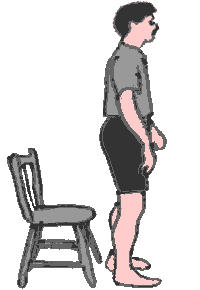IN THE LAST TWO POSTINGS WE HAVE looked at ʿAbd al-Jabbar's first two prongs of his theory of jurisprudence which Professor Anver Emon has characterized as a "Hard Natural Law" theory, namely, the notion of divine sustenance, or rizk (رزك), and the notion of synderesis or conscience, lutf (لتـف). The third prong of ʿAbd al-Jabbar's theory pertains to desire, ash-shahwa (الشـهو). Allah created the world for his creatures to enjoy, and without desire there would be not enjoyment. This desire, a created desire (khalq ash-shahwa,خلقالشـهو), "contributes to a normative ordering of [the empirically known] world in light of one's preference for one thing over another." Emon, 62. "For ʿAbd al-Jabbar, human desire . . . create an initial starting point for natural law reasoning about obligation." Emon, 63.
ʿAbd al-Jabbar's notion of desire is not a "whatever-feels-good-do-it" ethic. He does not advance a subjectivist, relativistic, hedonistic ethic. "Rather, the desire element embraces the moral agency of the individual." Emon, 63. Therefore desire, or lack of desire, was not an absolute and reliable guide. We sometimes experienced desires for things that are not authentic goods; at other times we do not feel desire for those things that are good. Additionally, some of our desires are accompanied by pain and hardship in their fulfillment. So while the hardship may not be desired, the ultimate end may be desired. So we do things that we do not desire as a means for an end that we do desire. Sometimes a cost/benefit analysis must be undertaken.
In al-Jabbar's view, one must avoid the Scylla of pure objectivity (lutf alone) or pure subjectivity (shahwa alone). Rather both lutf (conscience) and shahwa (desire) must be reconciled within the greater wisdom of creation, what ʿAbd al-Jabbar calls ʿilla (عِــلَّـة), a word meaning reason and which al-Jabbar uses "to capture the idea of wisdom . . . the circumstantial context of the wisdom that makes creation good . . . [and] the circumstances that are susceptible to human rational inquiry, and which demonstrate the purposefulness and beneficial quality of creation." In short, what Christians traditionally have regarded as the Eternal Law (q.v.)
ʿAbd al-Jabbar is clearly in the Mutazilite camp. He has taken a clear choice in the Euthyphro dilemma, on the side of reason over will. The example he gives of why Zayd should stand or sit in his al-Mughni leaves no doubt about his leanings:


Should Zayd Stand or Sit?
In assessing the reason behind creation, Allah's ʿilla, our knowledge of nature and of circumstances, particularly those that are future and are anticipated, are not by any means perfect. This ʿAbd al-Jabbar concedes. Only God has perfect, indefeasible knowledge of all: past, present, and future. Yet despite this lack of perfect insight, man may act, and act rightly, though he act only on the basis of preponderance of opinion, ghalabat az-zann (غلبت الظنن): "Any act of ours is good on the basis of the preponderance of opinion." Emon, 65 (quoting al-Mughni, al Taklif: 89) "Zann can be a circumstance establishing the goodness of acts." Emmon, 66 (quoting al-Mughni, al-Taklif:268). Moral certainty of the good, not absolute certainty of the good, is required for an act to be accorded as good.
The last important component in ʿAbd al-Jabbar's moral theory is will or irada (إرادة). ʿAbd al-Jabbar observes that though men have a desire to behave in certain ways, and though they have a faculty that would guide them both intellectually (lutf) and sensibly (shahwa), they do not always act so. Man has the capacity to act against the natural right that so informs him, even against the preponderance of opinion, the ghalabat az-zann. "The irada involves a determination of particular course of conduct and a choice to act in that manner." Emmon, 65. Man's created will, even though it can be abused in this way, is God's gift. If man uses his will against his lutf and the ghalabat az-zann, one may be assured that God will punish him for it.
It is clear from this review of ʿAbd al-Jabbar's moral thinking that he sees man as having a free agency, one that involves various components, and one that is ordered toward fulfilling his good with a combination of both impulse, reason, and will. How does man's moral agency comport or fit with the will of Allah? The answer to that question will be answered in our next, and last posting on what Emon calls the "Hard Natural Law" theory of the Mutazilite Muslim thinker ʿAbd al-Jabbar.
ʿAbd al-Jabbar's notion of desire is not a "whatever-feels-good-do-it" ethic. He does not advance a subjectivist, relativistic, hedonistic ethic. "Rather, the desire element embraces the moral agency of the individual." Emon, 63. Therefore desire, or lack of desire, was not an absolute and reliable guide. We sometimes experienced desires for things that are not authentic goods; at other times we do not feel desire for those things that are good. Additionally, some of our desires are accompanied by pain and hardship in their fulfillment. So while the hardship may not be desired, the ultimate end may be desired. So we do things that we do not desire as a means for an end that we do desire. Sometimes a cost/benefit analysis must be undertaken.
In al-Jabbar's view, one must avoid the Scylla of pure objectivity (lutf alone) or pure subjectivity (shahwa alone). Rather both lutf (conscience) and shahwa (desire) must be reconciled within the greater wisdom of creation, what ʿAbd al-Jabbar calls ʿilla (عِــلَّـة), a word meaning reason and which al-Jabbar uses "to capture the idea of wisdom . . . the circumstantial context of the wisdom that makes creation good . . . [and] the circumstances that are susceptible to human rational inquiry, and which demonstrate the purposefulness and beneficial quality of creation." In short, what Christians traditionally have regarded as the Eternal Law (q.v.)
The ʿilla operates in ʿAbd al-Jabbar's natural law theory as a focal point of rational deliberation in order to prevent human desire from becoming so self-referential as to lose its connection to the larger natural world. Indeed, even God recognizes that knowing the circumstances surrounding an act is necessary to know its normative quality: 'God's knowledge of the goodness of the thing leads to His choice of it.'Emon, 64 (quoting al-Mughni,al-Taklif:96).
ʿAbd al-Jabbar is clearly in the Mutazilite camp. He has taken a clear choice in the Euthyphro dilemma, on the side of reason over will. The example he gives of why Zayd should stand or sit in his al-Mughni leaves no doubt about his leanings:
To illustrate his point, ʿAbd al-Jabbar wrote: 'it would not be good for God to obligate Zayd to stand or sit, as He obligates the return of bailments, fairness, and thanking the benefactor when there is no good in [standing or sitting].'Emon, 64 (quoting al-Mughni, al Taklif: 149) In this case, circumstances, not intrinsic or inherent properties, determine whether Zayd should stand or sit, yet whether bailments, fairness, thanking benefactors, or whether Zayd should sit or not is involved, whether God wills certain activity is determined by the question of good. Good precedes right. That is, God wills something because it is good; it is not good merely because God arbitrarily wills it. God wills whether Zayd should stand or sit depending upon the circumstances and whether it would be to Zayd's good. In other words, God's will always has a reason behind it.


Should Zayd Stand or Sit?
In assessing the reason behind creation, Allah's ʿilla, our knowledge of nature and of circumstances, particularly those that are future and are anticipated, are not by any means perfect. This ʿAbd al-Jabbar concedes. Only God has perfect, indefeasible knowledge of all: past, present, and future. Yet despite this lack of perfect insight, man may act, and act rightly, though he act only on the basis of preponderance of opinion, ghalabat az-zann (غلبت الظنن): "Any act of ours is good on the basis of the preponderance of opinion." Emon, 65 (quoting al-Mughni, al Taklif: 89) "Zann can be a circumstance establishing the goodness of acts." Emmon, 66 (quoting al-Mughni, al-Taklif:268). Moral certainty of the good, not absolute certainty of the good, is required for an act to be accorded as good.
The last important component in ʿAbd al-Jabbar's moral theory is will or irada (إرادة). ʿAbd al-Jabbar observes that though men have a desire to behave in certain ways, and though they have a faculty that would guide them both intellectually (lutf) and sensibly (shahwa), they do not always act so. Man has the capacity to act against the natural right that so informs him, even against the preponderance of opinion, the ghalabat az-zann. "The irada involves a determination of particular course of conduct and a choice to act in that manner." Emmon, 65. Man's created will, even though it can be abused in this way, is God's gift. If man uses his will against his lutf and the ghalabat az-zann, one may be assured that God will punish him for it.
It is clear from this review of ʿAbd al-Jabbar's moral thinking that he sees man as having a free agency, one that involves various components, and one that is ordered toward fulfilling his good with a combination of both impulse, reason, and will. How does man's moral agency comport or fit with the will of Allah? The answer to that question will be answered in our next, and last posting on what Emon calls the "Hard Natural Law" theory of the Mutazilite Muslim thinker ʿAbd al-Jabbar.


